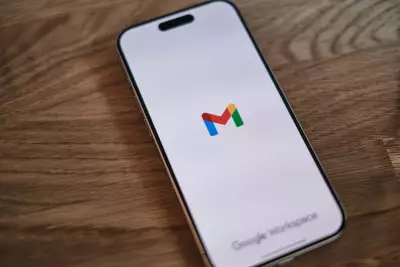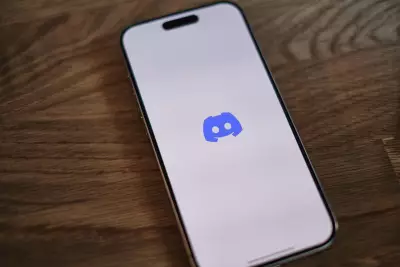What Is Google Chat Scam and How to Spot and Stop It
Table of Contents
- By Steven
- Published: Jul 16, 2024
- Last Updated: Jul 30, 2024
Google Chat is a popular communication software that allows you to share content and send messages in real time. Individuals use it for personal communication or collaboration with teams at work. However, as its popularity is increasing, people are using it as their primary form of communication.
There has been an upsurge in Google Chat scams, which tend to happen on messaging platforms like Google Chat. Scammers use various tactics, such as romance scams, investment or job offers, phishing attacks, etc., to lure unsuspecting victims into their traps. With increased online communication, online scams are on the rise, and many scammers exist on online platforms. Unsurprisingly, cybercriminals use Google Chat to send fraudulent messages and prompt people to give out their personal information.
Google Chat scams are cyber scams, such as phishing attacks, fake tech support messages, investment fraud, and other criminal activities that scammers use to steal information or funds from Google Chat messaging platform users. A typical example is when a scammer impersonates a contact on Google Chat, sends a convincing message to the victim, and prompts the victim to share some authentic personal information or transfer funds into a bank account.
Knowing the various scams on Google Chat and ways to avoid them in detail is essential. This article explains Google Chat scams and their types, how they work, why they have become so prevalent, and how to protect yourself from being a victim.

Why Do Scammers Use Google Chat?
Accessibility, anonymity, and live communication are features that attract scammers and make Google Chat a desirable channel for them. These various reasons are explained sufficiently below:
Accessibility and Popularity
Google Chat is an online chat platform that is so widely available. Setting up an account takes mere minutes. With this, scammers can contact victims and make money without having to fish very hard in the sea of available people, as millions of users can be victimized. The link with other Google services is also a feature that makes Google Chat tempting to criminals. Many users are already signed up for multiple other Google services, such as email, cloud storage, document collaboration, and more. Thereby making it much easier to trick users into believing a scam is genuine.
Anonymity and Ease of Creating Fake Profiles
Creating single or multiple accounts on Google Chat takes only a few minutes. Therefore, it is equally easy for these scammers to run several scam 'brands' simultaneously. In conjunction with the ease of creating a convincing fake profile, the anonymous nature of Google chat makes it difficult for victims to ascertain the scammer's true identity and, thus, much more accessible to fall prey to. A scammer can easily create a profile based on stolen or made-up information, often leading to the victims believing that the profile represents an acquaintance or an official organization.
Direct and Immediate Communication
The direct and immediate communication on Google Chat makes scammers' jobs much easier, as they can lure their victims faster and with a more legitimate appeal. These scammers can use instant messaging offered by Google Chat to target victims directly at high speed, increasing the likelihood of success and manipulation. A high-pressure approach is employed, speeding up victims' responses and leading victims to make a quick decision before fully considering the situation.
Common Types of Google Chat Scams
There are many types of scams on Google Chat, varying from fake tech support to job offers and romance scams. Here are some of the common types of Google chat scams:
Phishing Scams
Phishing involves sending messages as though they are from a legitimate address, but it requests the recipient to click a particular link or open an attachment.
One common tactic involves impersonating a contact or trusted organization by requesting their recipient to identify themselves or confirm personal information by sending it to a web link. A scammer might send a message purporting to be from an acquaintance or co-worker, asking the victim to review an essential false document, as the message link leads to a fake login page designed to capture the victim's credentials.
Another tactic is impersonating a company or the supposed provider of a paid service, claiming that the victim has an issue with the account that needs immediate attention.
Fake Tech Support
Often, scammers use Google Chat to reach potential victims, posing as tech support employees from Google or some other company. They inform the victim of a problem with their Google account or device and ask for remote access or personal information. This is called a tech support scam. They tend to inject lots of threat and urgency into their communication to force victims to comply. Red flags include unsolicited messages, requests for sensitive information, and a sense that the scammer is trying to push you into a hasty decision.
Investment and Job Offer Scams
Fake jobs and investment offers are common types of Google Chat scams. Scammers promise high returns or hugely beneficial job positions in exchange for personal data or urge victims to transfer money for job positions. For instance, a lucrative job that requires a substantial upfront fee or an investment scheme that will supposedly offer extraordinary returns or fake recruiters with offers of high-paying jobs but who require money for processing fees or training materials upfront are examples of job scams.
For investment fraud, the scammer might present an investment with high returns, including buy-in documents and testimonials from 'successful' investors. After the victim becomes interested, the scammer asks for an 'investment' or personal information, ultimately leading to financial losses.
Romance Scams
Romance scams are a type of confidence scheme in which the scammer gets closer to the victim over months or even years before asking for money or personal details. These scammers set up fake profiles with pictures that are either outright fake, stolen, or edited, bombard victims with attention, and start to profess love, then go ahead and request financial assistance.
Scammers find their victims on dating sites or apps before transferring them onto social media platforms like Google Chat. There, they take their scam to the next level of intimacy, sharing supposedly private details and desperate stories that leave the victim wanting more.
How to Recognize Google Chat Scams
To recognize Google Chat scams, it is essential to always be vigilant and pay attention to certain signs to protect yourself. The signs below are what you should look for in Google Chat.

Unsolicited Messages
Beware of random messages from numbers you don't recognize. Few scams begin with you sending the initial message, and because scammers are everywhere, it's essential to check and ensure you're talking to a legitimate person. If you receive a message from someone you don't know, research their profile first to ensure you're dealing with a natural person before taking further steps.
Requests for Personal Information
Legitimate services won't ask for sensitive details via chat, such as passwords or Social Security numbers. It's also suspicious when a service asks for more information about you than makes sense. Scammers often add demands for urgency, for example, 'call now!', 'This needs to happen today!'. And once they have your attention, they might make demands. Do not share personal details with anyone who asks, including banking information or login credentials, because a scammer could use those to commit identity theft or fraud.
Urgent or Threatening Language
You can assume you are a scam victim if the message is full of urgency or threat: 'Your account will be locked,'' 'You owe money,'' 'Read this now, or else.' Etc. If at any point you get a message that sounds like it is pushing you in the wrong direction, it is worth your time to stop and check. If you get scared or the message makes you feel pressured, take your time to verify the message's authenticity.
Steps to Protect Yourself from Google Chat Scams
By taking the following steps, you can enormously reduce the risk of falling for Google Chat scams.
Enable Security Settings
Two-factor authentication and secure, unique passwords on your accounts are empowering security measures that allow you to diminish the probability of getting scammed. Keeping your passwords updated and reviewing your account settings regularly can help.
Google has a suite of security measures you can take to help protect your account from break-ins. Using two-factor authentication means you'll have to answer an additional verification question each time you log in, on top of knowing your password, making it difficult for scammers to gain access even if they discover your password. Setting up account alerts, for example, can help you identify changes in contact information or uploaded content that might not be yours.
Verify Contacts
Always trace the contact's identity before you speak to them. Check for profile inconsistencies, look up their names online, and contact the organization they claim to be from. If a contact detail seems vague or seems like a new profile, you're probably speaking to a scammer.
Report and Block Scammers
If a message triggers your 'this doesn't seem right' radar, you can notify Google and block the culprit. The community will be warned, and Google will have grounds to investigate and potentially take action against the reported account. This will prevent the individual from being able to contact you again. It will also remove that person's messages from your chat list and stop them from contacting you further.
If you still receive a message long after this, you can report the individual by clicking on the three dots to the right of their photo and selecting the 'Report Spam' option. Google has a support forum for reporting scams.
Google Chat is here to stay. However, you must be cyber security conscious and aware to keep safe on Google Chat and avoid getting hacked. The online landscape is constantly changing, as is how scammers operate, so staying informed and learning best-practice steps for online security are your best protection. Watch out for Google Chat scams to protect your personal information and banking details.
Be aware of the red flags and follow the above-mentioned steps to protect yourself from scams. Trust your gut, verify information, and avoid unsolicited messages. Also, you must share your experience with scammers on Google chats so that others can learn and stay aware.














